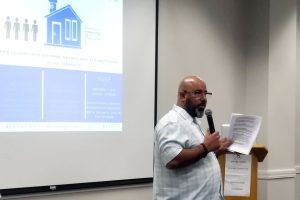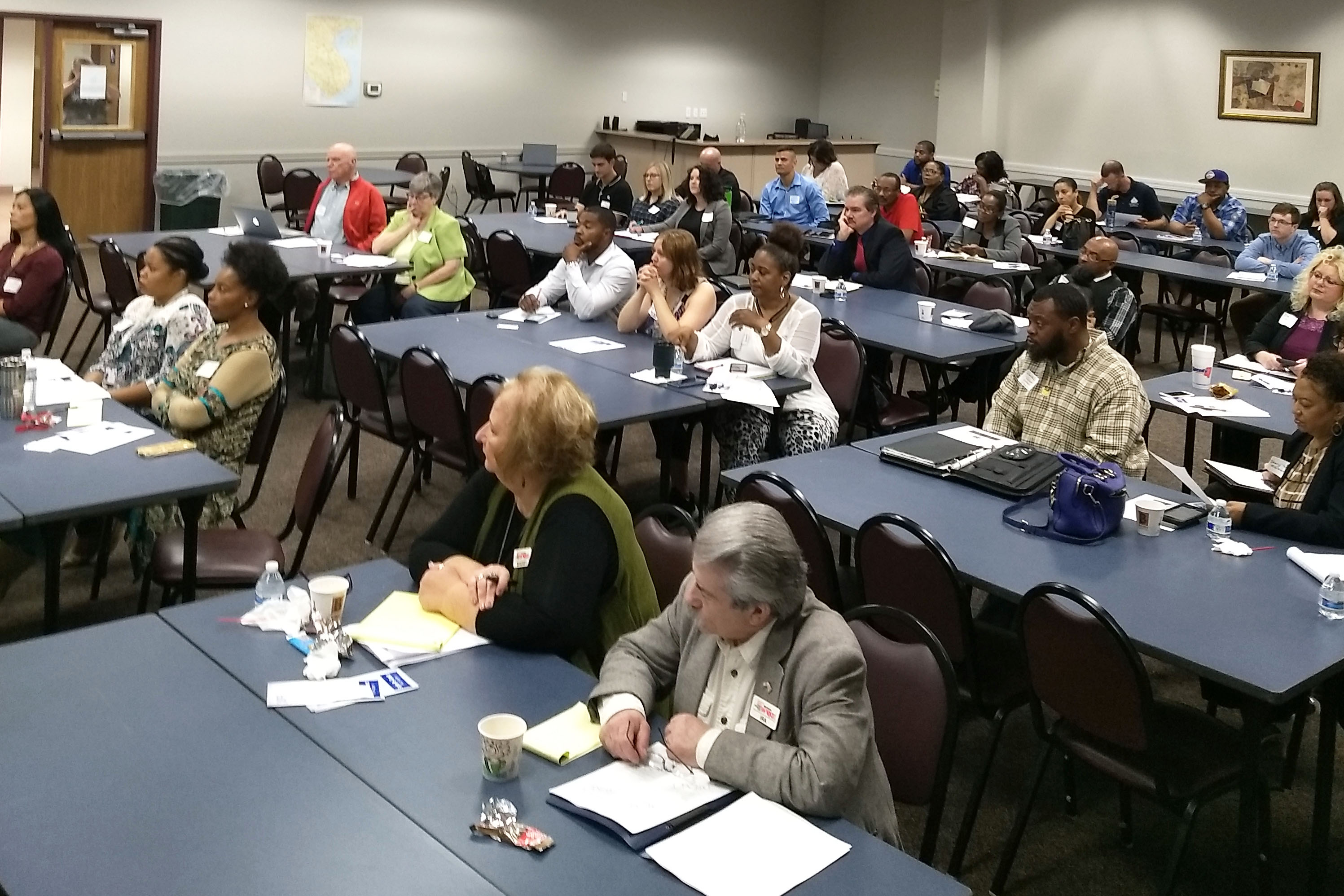Kimberly Cole is haunted by the memory of the young woman who came to her asking for help with her apartment manager. Cole is an instructor with St. Luke’s New Life Center in Flint, an organization that teaches job and life skills to people who have been formerly incarcerated or who come from a background of abuse. The woman was one of her students — a single mother trying to escape a history of abuse and substance use who was living in a dilapidated apartment with a front door hanging off its hinges.
“She was propping the front door up and wedging it closed,” Cole said. “And she showed me her baby. It was covered in sores from bedbugs. We went to the apartment manager and I told them that they had to do something, but they didn’t.”
A few days later, the worst possible thing that could happen, did.
Cole learned that during the night, a man and woman had broken through the jerry-rigged front door of the young mother’s apartment. They shot her several times in the head where she had been sleeping — in a chair by the broken door. Luckily, her baby wasn’t physically harmed, but it will grow up without his or her mother.
Cole’s story demonstrates in the starkest terms crime survivors’ urgent need for safe and affordable housing — and what’s at stake if they can’t find it.

Participants break into small groups to talk about barriers to safe housing.
Crime survivors’ housing needs were discussed by more than 60 housing advocates, social workers, law enforcement officers, representatives of faith-based agencies, representatives of criminal justice reform organizations and formerly incarcerated people and their families at a September 7 meeting in Flint co-hosted by Safe & Just Michigan and our partners at the Michigan Coalition Against Homelessness.
Cole blinked back tears as she talked about the shooting of her student, which is still a painful memory.
“Her past was an abusive background, she had been a victim of abuse and drugs,” Cole said. “But she was trying so hard to turn it around. She was doing all of the right things. All she was asking for was a safe place to live. She begged the manager to fix (the door), but they did nothing.
Cole has also seen how securing shelter can make all the difference for someone trying to escape violence.
Recently, one of her students called her in a panic. Her boyfriend had a gun and had shot at her. She needed a safe shelter immediately, but all of the shelters in Flint were full. Cole, who has volunteered and worked at St. Luke’s for several years, used her networks to find her a place that same night.
“Shelter is a life-or-death need,” Cole said. “The people I work with are taking all the right steps and doing all the right things, but if they can’t find a safe place to live, then they go back on the street or into a person’s house where people are using (drugs). They go back into chaos.”
Safe shelter is a basic human need for everyone. Researchers have found a lack of secure housing as a pressing concern for both survivors of crime and formerly incarcerated people, and their work has shown that the links between those two groups may be closer than many people think. For instance, children who grow up in unstable homes where they are maltreated are roughly twice as likely to become involved in crime than those who are not.

Safe & Just Michigan Director of Community Outreach Troy Rienstra speaks at the event.
Ashnee Young, a Flint-area resident who attended the meeting, said she has helped several people after they survived violent encounters, only to watch them get the run-around as bureaucrats directed them from one government office to another. And those delays can be more than annoying, she said.
“It affects the length of time someone goes without support. It affects the length of time one seeks support in homeless shelters or may not have someplace to stay at all,” Young said. “I’ve seen people give up. I’ve seen people just be exhausted. But I’ve also seen people persist.”
Just as disturbing to Young is the lack of empathy she’s seen from people who are quick to judge those who lack safe housing of their own. She believes people would be more understanding if people would take the time to get to know one another and lend a helping hand.
“I would invite anyone to spend time volunteering at a shelter,” she said. “Go into it with the mindset that it could so easily be me. It could so easily be someone you care about. Spend some time reflecting on what your privilege is that someone else might not have, and then share that privilege with someone else.”
Safe & Just Michigan knows that access to safe, affordable housing is a fundamental aspect of thriving, secure communities. We are glad to join with organizations like the Michigan Coalition Against Homelessness, that are striving to increase access to safe and affordable housing opportunities for all Michiganders.

